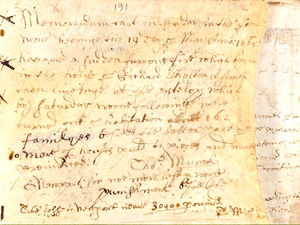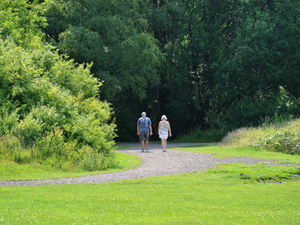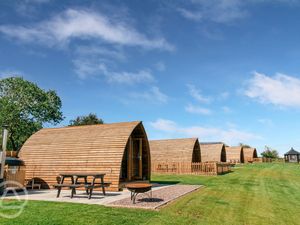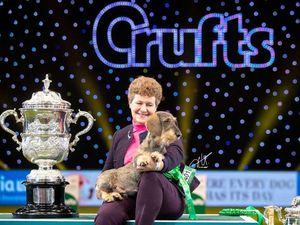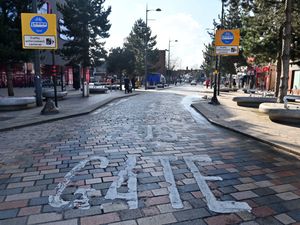45 years of broadcasting from Parliament
Patrick Cormack was leading a party of MPs on a tour of the forests of Scotland, when he switched the car radio on
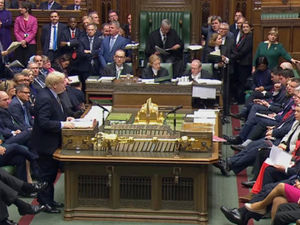
"I will never forget it - there we were in the middle of the Scottish forests, and then we heard George Thomas shouting 'order, order, order'."
It is 45 years this week since the broadcasters were allowed into parliament, and the now Lord Cormack remembers it as a momentous occasion.
"It was very strange," he recalls. "It was a beautiful summer day, we were in the middle of a forest in Dumfriesshire. We were glad to be in Scotland, but we were sorry not to be there on the first day that Parliament was broadcast."

Today the cut-and-thrust of Prime Minister's Questions and footage of ministers taking questions on television and radio is something we take for granted as central to our parliamentary democracy, but until June 9, 1975, the broadcasting of such events was strictly prohibited.
Ahead of what was described as a 'special' and 'historic' day in politics, BBC political editor David Holmes explained the old-fashioned formalities which "stop the place from getting into the extremes of incivility as passions rise, as they may well do this afternoon."
Thankfully, the honourable members managed to keep their passions under control as they questioned then-Industry Secretary Tony Wedgwood Benn about his plans for the shipbuilding and aerospace industries.
At the start of the first broadcast, Holmes set the scene, describing the small chamber with its five rows of green, leather benches either side of the room, giving an 'intimate and friendly' atmosphere to encourage and 'informal style of speaking'. It didn't seem that friendly, though, with the first MP to ask a question – Tory MP for Chertsey and Walton Geoffrey Pattie – asking Mr Benn to resign, describing the minister's opposition to membership of the EEC as "another of his crackpot schemes". Mr Benn gave as good as he got, telling his opposite number Michael Heseltine he found it 'increasingly difficult to take you seriously."
Mr Benn was lauded for his handling of the session by some unlikely supporters, with praise coming from The Sun, the Daily Telegraph, and the Financial Times. But while the Industry Secretary might have been able to bask in the praise of his appearance on radio, it seems the coverage had put his cabinet colleague Barbara Castle's nose out of joint.

"The newspapers are full of Wedgie’s 'triumph' at Questions yesterday," she wrote in her diary. "Some of the most ecstatic comments were from enemy papers. 'Big Benn is the star of the air!' said The Sun. 'Benn a hit in radio Commons', said the Daily Telegraph, which confirms my view that (a) the Press are doing more than anyone else to build up Wedgie and (b) that you have got to have certain attributes to be a successful rebel: you must shine on the platform and in the House. Wedgie does both, which is why he can get away with murder."
The acceptance of broadcasting from the chamber was a slow process say the least. The idea had previously been considered at a public inquiry in 1949, but Sir William Beveridge concluded that it would be harmful. In 1968, the Commons tried a private experiment with radio coverage, but it was not until 1975 that the broadcasters were finally allowed in. Even then, it was only for a month's trial, before MPs finally voted in 1978 to allow live broadcasting on a permanent basis.
The BBC's political reporters were ecstatic, saying it would ‘lead to heightened interest in the parliamentary process’, but some Radio 4 listeners were less impressed at seeing their regular afternoon plays replaced with the shenanigans of a different kind from Westminster.
Within the first two days of Radio 4’s coverage in April 1978, the BBC received 343 phone calls and letters of complaint, by the end of May this had risen to 2,799, with only 31 letters of appreciation. Some complained about the rowdy behaviour of MPs, some struggled to understand what was going on. Others simply found it dull.
Nevertheless, these teething troubles were quickly ironed out, and in 1983 the House of Lords took this a step further, by voting to allow in the TV cameras. The House of Commons followed suit in 1989.
At the time there were concerns that the wilder behaviour of some MPs would bring the house into disrepute, particularly after firebrand Edinburgh Leith MP Ron Brown had recently been suspended for damaging the mace during a heated debate on the proposed community charge. But Sir Bill Cash, at the time MP for Stafford, says it is only right and proper that people see a warts-and-all portrayal of what goes on in the house.
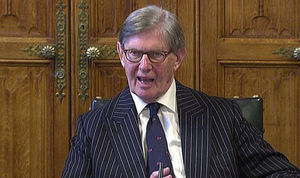
"It's been an extremely good thing," says Sir Bill. "People should be able to see the performance of MPs for themselves, the newspapers don't always give a complete picture."
And if there were any concerns that the proceedings would be too dull to attract viewers, these would quickly be dispelled. Millions watched in disbelief as Margaret Thatcher's long-time lieutenant Sir Geoffrey Howe made a withering critique of her leadership in his resignation speech in November 1990, and by the end of the month the Prime Minister was gone. Sir Bill recalls making a speech on television expressing his regret that she was leaving.
Surprisingly, the late BBC political editor John Cole revealed that Tony Benn, who made his name as the first minister to appear on radio, and Sir John Major, whose rise to prominence coincided with the Commons being televised, both had strong reservations about having the broadcasters in the Commons.
"They both think the media is trivialising politics," he said in a 1996 interview.
The BBC launched its Parliament Channel in 1992, which Sir Bill believes has given people a much greater understanding of what goes on in parliamentary democracy.
Lord Cormack looks back with some affection on how the broadcasting of Parliament has turned some politicians into household names, particularly former speakers George Thomas, remembered for calling 'order, order' in a soft Welsh lilt, and Betty Boothroyd who made her presence felt with the command to 'call me Madam'.
He says, looking back, it seems hard to imagine that prior to 1975 TV and radio stations were not allowed to broadcast the proceedings.
"Democracy is for the people, by the people, and it's very important that people should understand what is being done in their name," he says.

